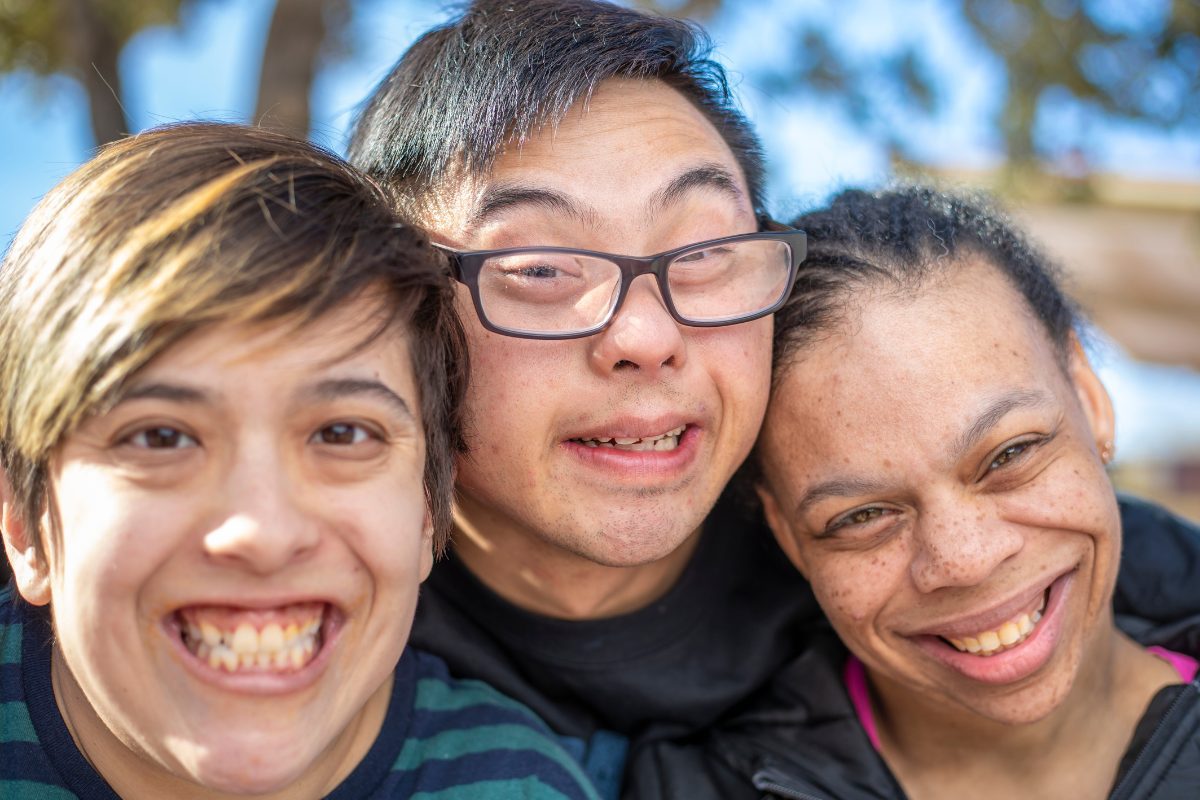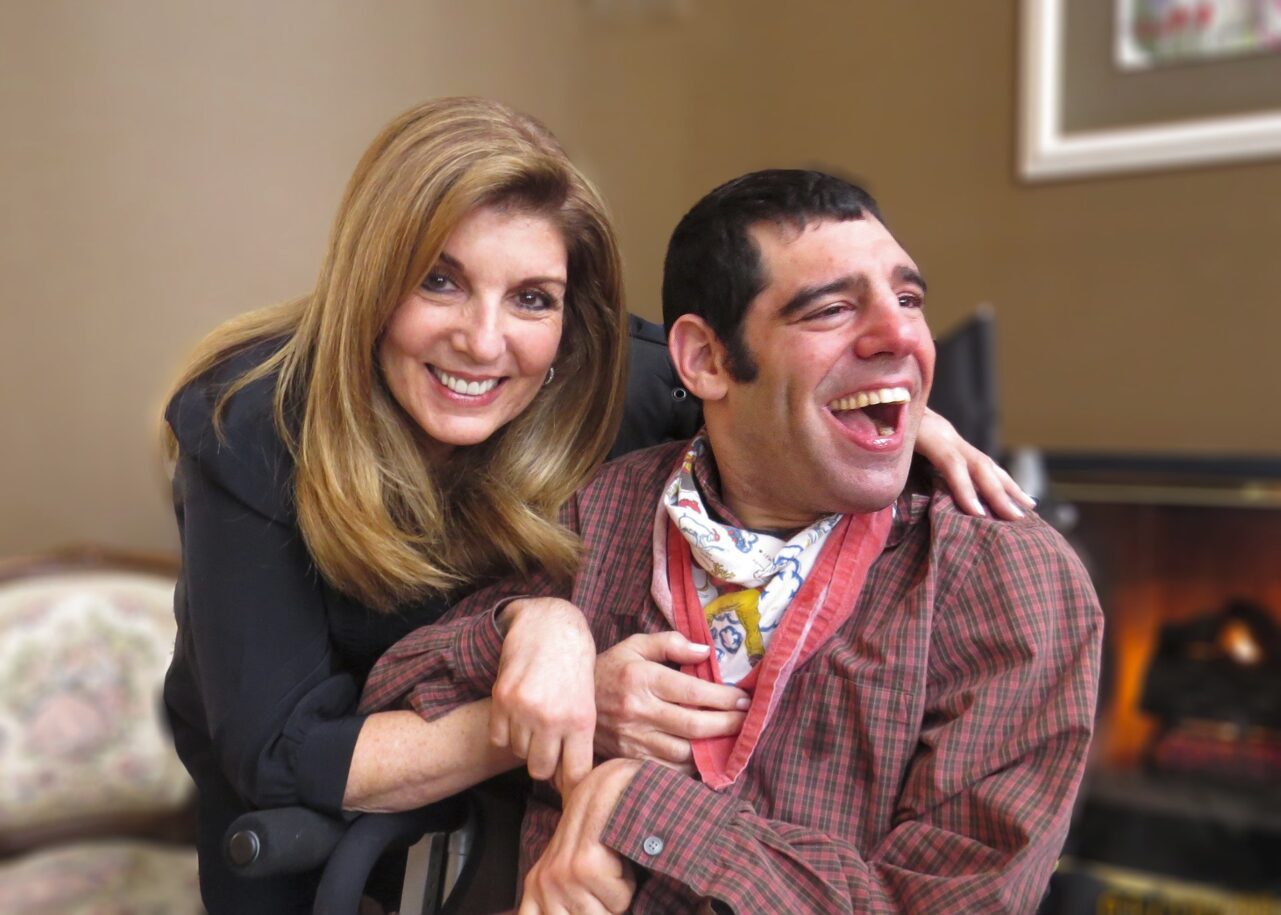
In this op-ed, Carol Tabas explains the importance of the proposed state budget’s $217 million for ID/A services and increased DSP wages, as her non-verbal son with significant disabilities relies on constant care from his family and underpaid Direct Support Professionals to ensure her son and others receive the necessary support.
This op-ed was first published in the Valley Ledger.
Chet feels at home, here in Western PA. This is his community, and I am his primary source of care, love, and devotion. He is a shining star to all who know him and a joy to be around. His smile lights up the room. Chet is non-verbal. He cannot get out of bed, feed himself, or manage his medications by himself.
I know that Pennsylvania Governor Shapiro has recommended that next year’s state budget includes more than $217 million in state funds, which would be matched with federal dollars. I also know that there are $34 million in the proposed budget to help the 6,000+ people on the emergency waiting list for services.
Frankly, it’s about time we saw this kind of support. Forty years ago, when Chet was born, we saw the need for this funding. People have struggled to be approved for the services because there simply were not enough funds out there. The wait list grew. Everyone suffered. We simply cannot get direct support professionals (DSPs) to help with our children’s care because the pay set by the state budget is too low.
I do trust our current leadership and their willingness to listen and respond, and I want to trust our legislators. That’s why I’m writing today. I’m hopeful they will listen and do the right thing by approving the budget. I would like to invite legislators and state and local officials to come spend the day or even a few hours with us. Come see the struggle we families live every day.
What legislators don’t really seem to understand is that my son cannot be left alone even for two minutes.
Recently, he was lying on his back and started to choke. His DSP had gone into the other room for just a minute, and I was closer but physically unable to help Chet sit up. I was able to roll him onto his side until his DSP could help me. If I hadn’t been there, it could have been a life-or-death situation.
This work is very stressful both physically and emotionally. It is imperative that I have DSPs who are highly skilled, qualified, compassionate, and available, but there simply aren’t enough of those DSPs that will do this difficult work at the pay offered by providers. Pennsylvania simply doesn’t fund providers enough money to pay these caregivers/saints adequately.
I want our state legislators to know that I am just one of thousands of aging parents who are still caring for their children with disabilities. What will happen when I’m gone? Who will help my son have his best life? What is our state and federal safety net for my son, and the thousands of others like him? I’d like our state leaders and legislators to know that I’m thankful for the support so far but we need to do better. Funding this budget is a start.
That said, I am at the age where my friends are retiring and enjoying their remaining years. I want that option too, but I have to be here for my son. The worries we carry are enormous. I want him to live and be cared for the way he deserves. That’s all any parent wants. Legislators – please fully fund the Governor’s budget to expand ID/A services and eliminate the emergency waiting list.

Central PA school board director cancels himself over gay guest speaker fallout
The Cumberland Valley School Board director resigned in protest on Monday after the board voted to reinstate Maulik Pancholy. The board originally...

New book details how Dave McCormick profited from 2008 financial crisis
Dave McCormick forged a relationship with Ray Dalio, the founder of Bridgewater Associates, in early 2008 and was rewarded with a job at Bridgewater...

18,000 PA residents who attended the Art Institute have student loans forgiven
The Biden administration announced last week they were forgiving student loans for 317,000 borrowers who attended the Art Institute. This will help...

Federal agency flags safety shortcomings that ‘exposed’ workers to explosion at US Steel plant
Investigators link deadly plant blast to safety failures, outdated procedures, and inadequate worker protections. A federal safety agency...

Federal judge orders the restoration of exhibits on slavery to the President’s House in Philadelphia
In a Presidents’ Day ruling invoking 1984, a federal judge rejected the government’s authority to remove slavery exhibits from a historic...





